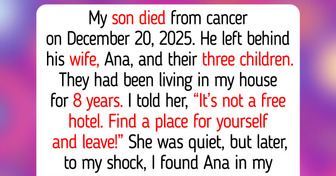Going low contact is the way to go. They played a stupid game they deserve what they got.
My Parents Gave My Brother the House They Promised Me—And They Learned Their Lesson
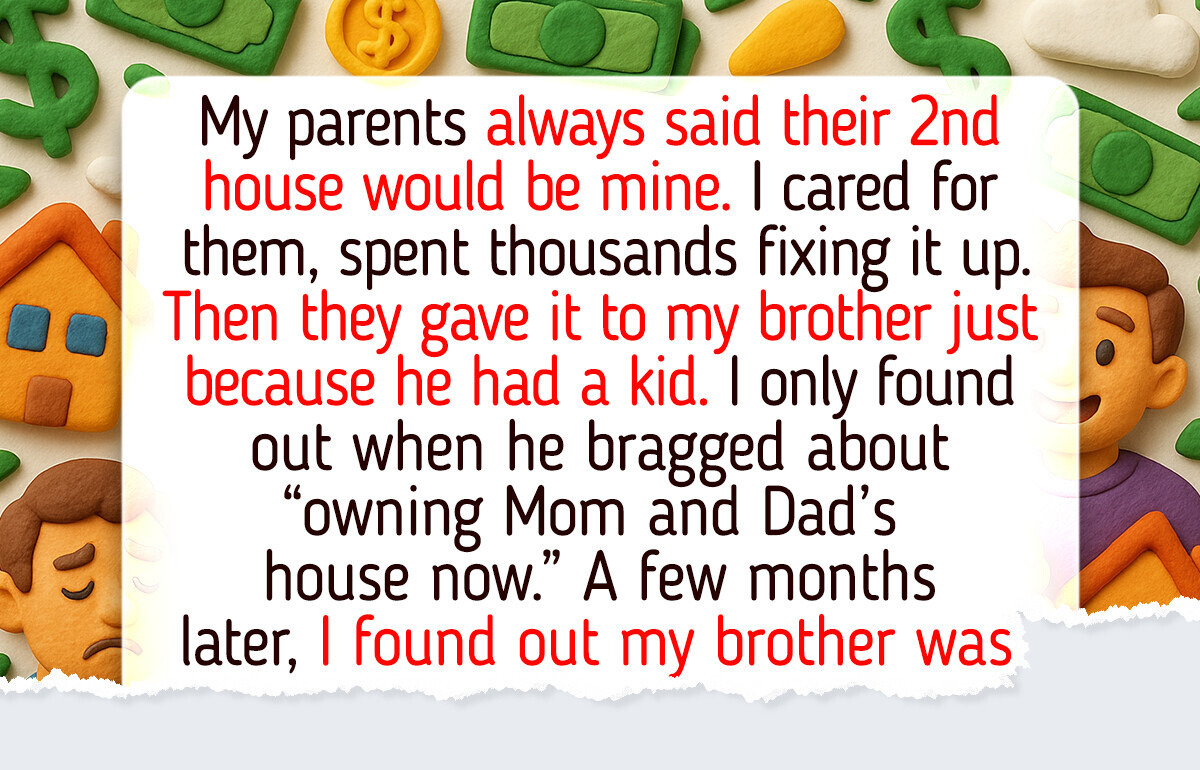
It’s never just about a house — it’s about trust, love, and the quiet promises that shape families. When parents say, “One day, this will be yours,” you build your life around that hope. You stay close, you help, you sacrifice — believing that loyalty means something.
This story of our reader reminds us that sometimes the deepest heartbreak doesn’t come from strangers — it comes from the people you’d have done anything for.
The letter:
Hi Bright Side Team!
Growing up, my parents always told me: “One day, our second house will be yours.” I was the one who stayed close. I did the grocery runs, the repairs, the late-night calls when they needed help. Meanwhile, my brother moved out at 19, barely visited, and constantly complained about “family obligations.”
So I built my life around that promise. I turned down job offers in other states so I could stay nearby. I invested time and money fixing things up — painting, plumbing, even putting a new roof on when it leaked. My parents always said it wasn’t charity, it was an investment in my future home.
Fast-forward: last year, my brother gets married and has a baby. Suddenly, my parents start talking about how “children need stability.” Then one night, over dinner, they casually announce they’ve transferred the deed of the house to my brother. “He needs it more than you,” they said.
I was stunned. I asked why they strung me along for years, why they let me spend thousands on upkeep if they were just going to hand it to him. Their answer? “You’re independent. You’ll figure it out. Your brother isn’t like you.”
The worst part? I didn’t even find out officially until my brother bragged about “owning Mom and Dad’s house now.” He had no problem rubbing it in my face.
Later (in a few months), I found out my brother was planning to sell the house. The one I maintained for years. The one my parents swore would be mine. He told me flat out, “Why should I keep it? It’s just a building. I’ll take the cash.”
When I confronted my parents, they broke down. They admitted they thought giving him the house would finally “tie him down” and keep him closer. Instead, he took the deed, took the money, and moved three states away. Now they call me constantly, asking for help.
And here’s the ugly truth I can’t shake: they lost the home, the money, and my trust, all because they valued his needs over the years I gave them.
Am I wrong for going low contact with them after this?

Thank you for sharing your story with us.
Your letter is a painful reminder of something many of us quietly struggle with — feeling overlooked by the very people they sacrificed everything for. You gave your parents loyalty, time, and care, only to learn that love isn’t always returned with fairness. It takes real courage to speak about that kind of hurt, and we’re grateful you did.
The hidden side of parental favoritism.

Wow what a betrayal on your parents' part. Not sure if you could sue for the costs you covered to maintain and fix up the house based on their promise to give it to you. You did all that in reliance of their promise. Shame on them. Shame on your brother. When they offered him the house he could have said thanks but no thanks, you already promised it to my sister. I would go no or low contact with all of them. When someone shows you who they are, BELIEVE THEM.
💔 The Hidden Cost of Favoritism
When parents deny having a “favorite,” adult children can sense unequal treatment — and it’s one of the strongest predictors of long-term family estrangement. Favoritism during adulthood continues to shape mental health and sibling relationships, often leading to feelings of betrayal and isolation.
That’s why what happened with the house hurt so deeply — it wasn’t about the money, it was about proof that your loyalty was taken for granted. You didn’t just lose a home; you lost a sense of emotional equity.
🧩 Why Betrayal Hurts Like Physical Pain
Betrayal by family doesn’t just feel painful — your brain processes it as real pain. Neuroimaging studies reveal that the anterior insula and anterior cingulate cortex, regions activated during physical injury, also light up when trust is broken by someone close. This explains why emotional betrayal — like being passed over or lied to by loved ones — triggers such intense, physical reactions.
So when you describe feeling “stunned” or “cut deeper than anything,” that’s not just a metaphor — it’s biology. Your brain recognizes betrayal from loved ones as a threat to survival.
When cutting ties with a parent becomes the only way to heal.
💬 “Just Because They’re Family Doesn’t Mean It’s Love.”
Society often judges people who go No Contact, especially with parents. But psychologists agree — family titles don’t erase abusive patterns. Emotional or narcissistic parents can appear loving in public while quietly manipulating and invalidating their children behind closed doors.
In her book “You’re Not Crazy — It’s Your Mother,” Danu Morrigan explains that the pain doesn’t come only from the abuse itself, but from its denial — both by the parent and by society. You’re hurt twice: first by what was done, and then by being told to “just get over it.”
🧠 Why Going No Contact Isn’t Cruel — It’s Healing
Choosing distance isn’t punishment; it’s protection. Studies show that estrangement can actually reduce chronic stress and help restore self-esteem in adult children of toxic parents.
It’s not easy — you lose family ties, face judgment, and grieve the parent you wished you had. But slowly, the silence starts to heal what constant contact kept reopening.
Favoritism isn’t just unfair — it’s psychologically damaging. It teaches one child they’re indispensable and another that they’re disposable. Your choice to step back isn’t cruelty; it’s emotional self-defense. Healthy boundaries don’t erase love — they protect the part that’s still real.
Comments
Related Reads
I Refuse to Let My Sister Hijack My Pregnancy Announcement
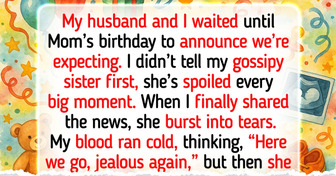
10 Mothers-in-Law Who Know How to Stir the Pot
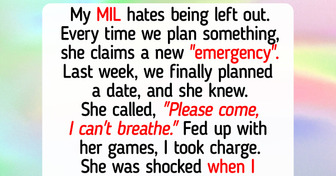
16 Touching Stories That Capture the Chaos and Beauty of Blended Families
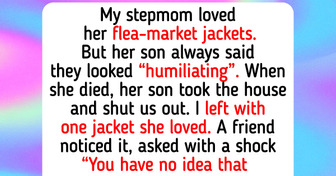
12 Moment That Show Kindness Is the Glue That Keeps the World From Breaking Apart
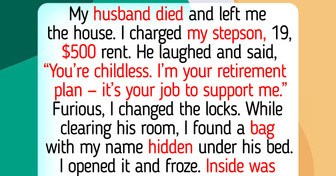
13 Double-Life Stories That Prove Even Those Closest to Us Have Secrets
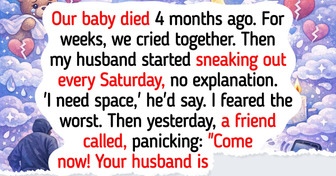
15 Heart-Centered Moments of Human Kindness That Only Happen Once in a Blue Moon
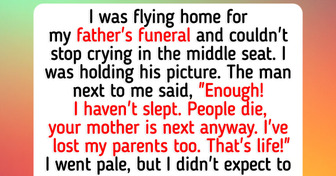
I Refuse to Save the Father Who Abandoned Me—Now Everyone Calls Me Heartless
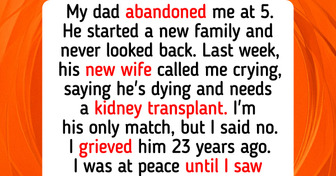
23 Times Quiet Kindness Won Over Human Ignorance in the Best Way
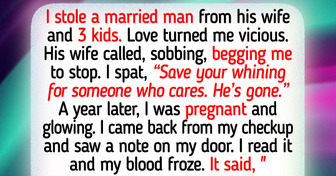
12 Heart-Touching Moments That Remind Us Workplace Loyalty and Empathy Don’t Pay the Bills
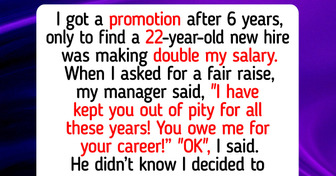
I Refused to Follow My Boss’s Dress Code—HR Had to Step In

I Refuse to Talk to My Friends After They Tricked Me Into Eating Meat—I’m Vegan
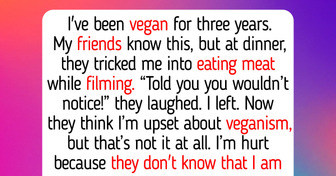
I Refused to Be a Free Hotel for My Late Son’s Family: They Eclipsed My Life
